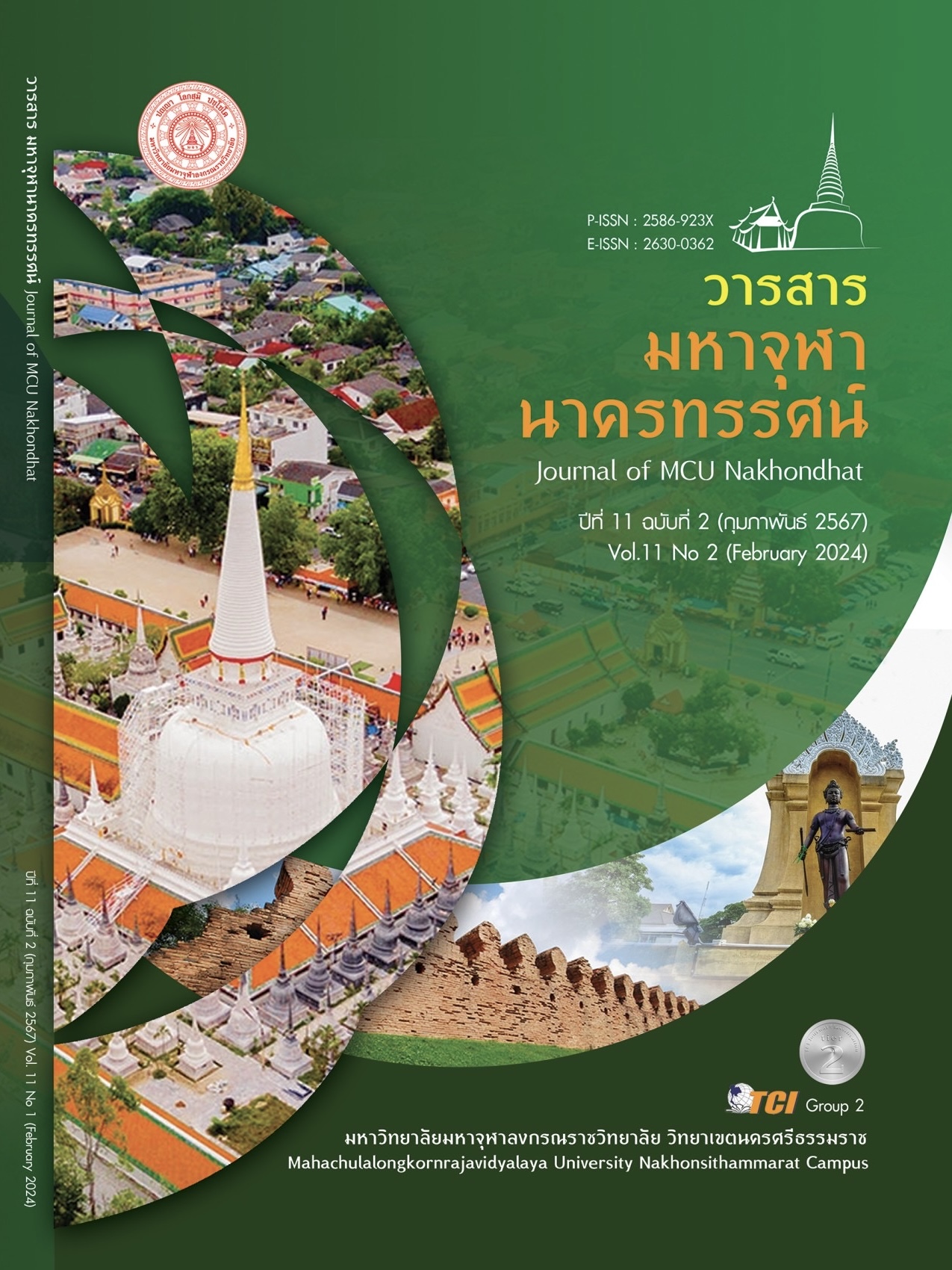DEVELOPMENT OF ONLINE ASSESSMENT FOR 21ST CENTURY LEARNING
Main Article Content
Abstract
This academic article presents a guideline for developing online assessment and evaluation models for 21st - century learning. Traditional learning is being challenged by new technologies, and learning assessment and evaluation must evolve alongside these changes. Online assessment and evaluation is a new approach that allows for the effective evaluation of student learning outcomes, addressing the skills needed in the 21st century and responding to the changes in the modern world. 21st-century learning emphasizes a wide range of skills beyond just content knowledge. Traditional assessment and evaluation models cannot effectively evaluate these skills. Online models have the potential to make assessment and evaluation more efficient, support a variety of assessment and evaluation formats, provide real - time feedback to students, and provide immediate feedback to students. This article presents a guideline for developing online assessment and evaluation models, starting with an analysis of the relevant 21st - century learning skills, including higher - order thinking skills, problem - solving skills, creativity, communication skills, collaboration skills, and information and digital literacy skills. The article then considers the appropriate assessment formats for each skill, using assessment and evaluation principles that emphasize the learning process over the outcome and focus on providing feedback to improve student learning. The development of online assessment and evaluation models for 21st - century learning will help to make learning assessment more effective. It will enable the comprehensive and diverse assessment of 21st-century learning skills, allowing students to develop the skills necessary for life and work in the digital age effectively.
Article Details

This work is licensed under a Creative Commons Attribution-NonCommercial-NoDerivatives 4.0 International License.
References
จงภพ ชูประทีป. (2560). การพัฒนาคลังข้อสอบและระบบการสอบออนไลน์. เรียกใช้เมื่อ 21 มกราคม 2567 จาก https://www.gotoknow.org/posts/118316.
ชโรชีนีย์ ชัยมินทร์. (2562). MOOC: เพื่อการเรียนรู้ตลอดชีวิตในศตวรรษที่ 21. วารสารมนุษยศาสตร์และสังคมศาสตร์ มหาวิทยาลัยราชภัฎเชียงใหม่, 1(1), 46-70 .
ณฐภัทร ติณเวส และฐาปนีย์ ธรรมเมธา. (2559). การศึกษารูปแบบการจัดการศึกษาออนไลน์ระบบเปิดแบบ MOOC ของอุดมศึกษาไทย. วารสารอิเล็กทรอนิกส์ Veridian มหาวิทยาลัยศิลปากร (มนุษยศาสตร์สังคมศาสตร์และศิลปะ), 9(3), 1463-1479.
ณภัทร จาตุศรีพิทักษ์. (2557). วิเคราะห์แนวโน้มการศึกษาออนไลน์. เรียกใช้เมื่อ 30 มกราคม 2567 จาก https://thaipublica.org/2014/10/settakid2-online-education/
ปัญญาพนต์ พูนสวัสดิ์. (2564). Digital Education การศึกษาบนโลกดิจิทัล กับผู้เรียนในศตวรรษที่ 21. เรียกใช้เมื่อ 24 มกราคม 2567 จาก https://www.digitalagemag.com/digital-education
พาสนา จุลรัตน์. (2561). การจัดการเรียนรู้สำหรับผู้เรียนในยุค Thailand 4.0. วารสารอิเล็กทรอนิกส์ Veridian มหาวิทยาลัยศิลปากร (มนุษยศาสตร์สังคมศาสตร์และศิลปะ), 11(2), 2363-2380.
มานิตย์ ภาษานอก. (2561). การพัฒนาและหาประสิทธิภาพ ประสิทธิผลนวัตกรรมสำหรับการเรียนรู้ด้วยตนเอง. ใน วารสารเทคโนโลยีและสื่อสารการศึกษา คณะศึกษาศาสตร์ มหาวิทยาลัยมหาสารคาม. 1(2), 9-18.
วิทยา วาโย และคณะ. (2563). การเรียนการสอนแบบออนไลน์ภายใต้สถานการณ์แพร่ระบาดของไวรัส COVID -19: แนวคิดและการประยุกต์ใช้จัดการเรียนการสอน. วารสารศูนย์อนามัย, 19(14), 285-298.
วิรัช ปัณฑ์ศิริโรจน์. (2559). Education 4.0. เรียกใช้เมื่อ 22 มกราคม 2567 จาก https://www.applicadthai. com/articles/article-education/education-4-0/
สถาบันทดสอบทางการศึกษาแห่งชาติ องค์กมหาชน. (2560). การสอบด้วยระบบอิเล็กทรอนิกส์ (E - Testing). เรียกใช้เมื่อ 23 มกราคม 2567 จาก https://www.niets.or.th/th/catalog/view/310
สถาบันส่งเสริมการสอนวิทยาศาสตร์และเทคโนโลยี. (2566). เทคโนโลยีกับการศึกษา. เรียกใช้เมื่อ 26 มกราคม 2567 จาก https://www.scimath.org/article-technology/item/12422-2021-08-23-06-07-45
สำนักงานคณะกรรมการการศึกษาขั้นพื้นฐาน. (2566). นโยบายสำนักงานคณะกรรมการการศึกษาขั้นพื้นฐาน. Retrieved มกราคม 24 , 2567, from https://www.obec.go.th/
อานนท์ ศักดิ์วรวิชญ์. (2560). 11 ลักษณะของคนไทย 4.0 ที่ต้องปฏิรูปจะช่วยให้ Thailand 4.0 เป็นความจริง. เรียกใช้เมื่อ 21 มกราคม 2567 จาก https://mgronline.com/daily/detail/9600000000600.


